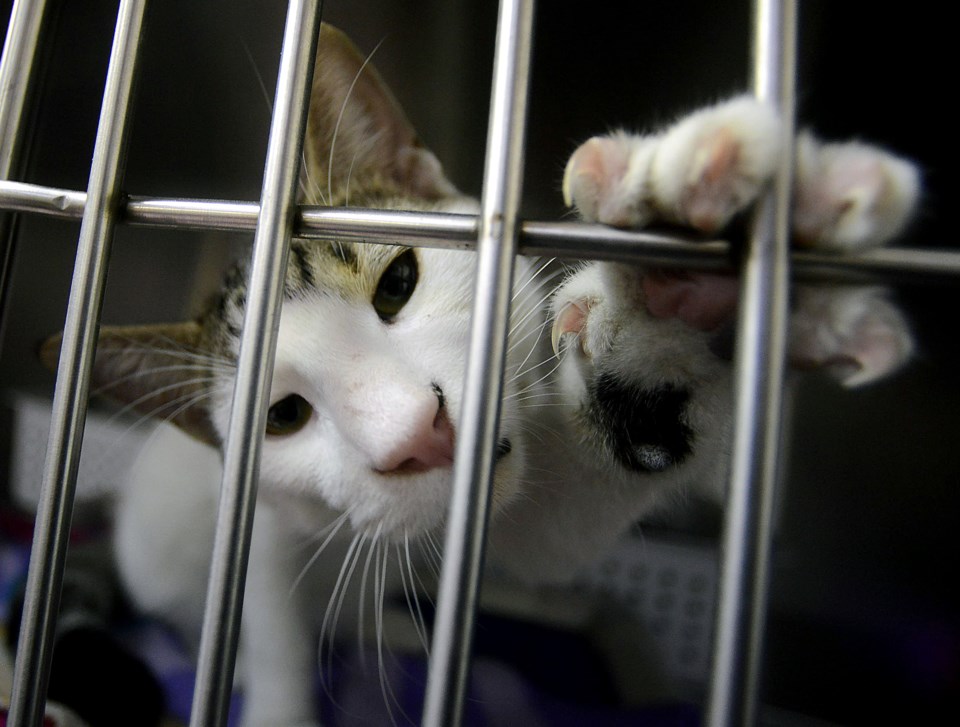The Guelph Humane Society says that cat licensing is a positive step, but only part of the answer in tackling the issue of stray cats in Guelph.
In 2015 there were 584 cats brought in as strays to the Guelph Humane Society. Of those, only 77 were reclaimed by their owners.
Overall the Humane Society took in 935 cats last year. So far this year that number is 908.
The main benefit to cat licensing, said Lisa Veit, Associate Director of the Guelph Humane Society, is to reunite more cats with their owners.
"Right now only about 13 per cent of the cats that come into the Guelph Humane Society as strays are reclaimed by their owner and that's higher than the national rate of nine per cent," Veit said. "For dogs it's almost 80 per cent."
Dogs are often tagged, microchipped and licensed.
A proposed new animal control bylaw goes before City Council's Committee of the Whole on Dec. 5. Part of the new bylaw calls for a $25 cat licence beginning in 2018.
The new bylaw is the result of three year's work of the Animal Control Working Group, of which the Guelph Humane Society was part of.
"The largest challenge we face when cats come into the Humane Society, and frankly this is consistent with shelters all over North America, is that most cats are not identified and that makes it really difficult to reunite them with their owner," Veit said.
But licensing is just part of the puzzle, Veit said, adding that while there are municipalities that have cat licensing, it is not widespread at this point.
"Cat licensing is seen as the first step and then have more of an education approach and a community approach," Veit said.
"I would say licensing is a first step to altering the bylaws to a tiered approach in terns of helping with responsible cat ownership."
Education, possible future bylaw changes, spay and neuter programs and public awareness are also part of reducing the number of unclaimed cats.
Veit said people supervise dogs better outside, but consider cats to be more autonomous and independent.
"The reality is cats face lots of perils when they are outside and one of those is that they can get lost," she said.
A new bylaw would be a modernization and bringing together of four animal control bylaws the city currently has in place.
Of the $25 cat licence fee, $5 would go towards cat welfare programs. A 50 per cent subsidy would be available for those that qualify.
The Guelph Humane Society does not euthanize cats based on space or quantity of cats it has at its facility, only in cases of health or serious behavioural problems, Veit said.
Last year approximately 93 cats were euthanized - 10 per cent of the total brought in to the shelter.
In bringing forth the new proposed cat licensing recommendation, Doug Godfrey, the city's general manager of operations, said the intent is to improve reclaim rates of stray cats.
“The best approach to improving rates is to ensure cats are identified whether that is through micro chipping or with a collar and identification tag," Godfrey said in a news release.
